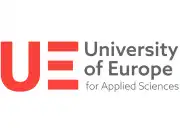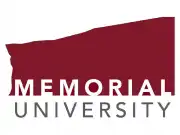Master's programs in Canada for international students
- Advantages of Master's Programs in Canada
- Formats and Levels of Master's Programs in Canada
- Top Universities for Master's Programs in Canada
- How to Apply for Master's Programs in Canada
- Documents for Master's Program Admission in Canada
- Language of Instruction and Preparation for Master's in Canada
- Cost of Master's Programs in Canada
- Scholarships and Grants for Master's Programs in Canada
- Career Prospects After Master's in Canada
- Frequently Asked Questions

Master of Science - Clinical Psychology with focus on Rehabilitation and Gerontopsychology
University of Europe for Applied Sciences - GermanyDo you want to study human behavior in grad school?
Combining a Bachelor's and Master's in psychology at UE gives students access to a broader professional field and more study options. UE's Clinical Psychology Master's degree focuses on rehabilitation, gerontological psychology, coaching,…

Master of Arts - Anthropology
Memorial University of NewfoundlandStudents of this program learn about how concepts such as class, gender, and ethnicity relate to a variety of areas including development, environmental crises, imaginary worlds, labour, media, politics, religion, tourism, and heritage. Our graduate programs foster skills needed to think critically…

Master of Applied Ocean Technology - Ocean Mapping
Memorial University of NewfoundlandThe new Master of Applied Ocean Technology (Ocean Mapping) degree focuses on improving an ocean mapper's technological capability to handle ocean data and provide real-world solutions for our oceans' sustainability.
The master’s program is for students looking to attain higher level of credential…

Master of Arts - Archaeology
Memorial University of NewfoundlandMemorial Archaeology has a growing international reputation based on the range and quality of scholarly research, proficiency in teaching, and cutting-edge infrastructure.
We offer distinct strengths in historical archaeology, archaeological sciences, and the ancient indigenous past for…

Master of Artificial Intelligence
Memorial University of NewfoundlandThe Master of Artificial Intelligence (MAI) is a course-based Master's degree designed for students who want to learn how to integrate and apply Artificial Intelligence in a number of industries. The Master of Artificial Intelligence (MAI) is a four-term, course-based Master's programme offered jointly…

Master of Arts - Arts and Education
Memorial University of NewfoundlandMaster of Arts and Education is a dual degree offered by the Faculty of Education and the Department of Modern Languages, Literatures, and Cultures (Faculty of Humanities and Social Sciences) (Education and Francophone Literature and Cultures). The curriculum is intended for French and French immersion…

Master of Sciences - Biochemistry
Memorial University of NewfoundlandWith an emphasis on research and other STEM careers, our graduate program offers an advanced education. Many of our Master of Science (MSc) graduates go on to pursue doctoral studies at our institution. We are a one-of-a-kind department with a wide range of expertise, from the physiology and molecular…

Master of Sciences - Biology
Memorial University of NewfoundlandThe MSc curriculum consists of courses and a thesis that can be finished in two years of full-time study.
The Department of Biology at Memorial University is home to nearly one hundred graduate students, thirty full-time faculty members, and several cross-appointment professors from other academic departments.
Roughly twenty researchers from outside Memorial University, the majority of whom are employed in government laboratories (agriculture, fisheries, forestry, and wildlife), hold adjunct appointments with the Department and contribute to the graduate program as co-supervisors and supervisory committee members.

Master of Sciences - Boreal Ecosystems and Agricultural Sciences
Memorial University of NewfoundlandIn the context of boreal ecosystems, our M.Sc. program in agricultural sciences and boreal ecosystems involve intensive, hands-on study of resources and agriculture. The programs emphasize the economics and science of plant, soil, land, and water resources.
The need for food and water security,…

Master of Science - Chemistry
Memorial University of NewfoundlandMemorial University's Department of Chemistry is one of the largest in Atlantic Canada, with 23 academics, 13 permanent laboratory instructors and instructional assistants, and a number of support and research employees. Currently, around 60 graduate students work in the Department's research laboratories.…
Advantages of Master's Programs in Canada
Canada holds leading positions among countries offering quality higher education for international students. Master's programs in Canadian universities combine high academic standards, innovative teaching approaches, and international recognition of diplomas.
Key advantages:
- Internationally recognized diploma accepted worldwide.
- Stable and safe country with high standard of living.
- Modern research centers and laboratories.
- Opportunity to combine studies and practical experience.
- Wide choice of specialties and languages of instruction.
- Right to work during studies and after program completion.
- Immigration opportunities through education.
Formats and Levels of Master's Programs in Canada
Master's programs in Canada vary in structure and academic focus. Main formats:
- Course-based Master's (applied programs) — focused on professional training, include lectures, seminars, projects.
- Research-based Master's (research programs) — involve conducting scientific work and writing a thesis.
- Professional Master's (practice-oriented programs) — designed to acquire specific skills for work in particular industries.
Standard duration of study:
- 1-2 years for most programs.
- Some technical and medical programs may last longer.
Top Universities for Master's Programs in Canada
| University Name | Program | Cost for International Students per Year | World Ranking (QS) |
|---|---|---|---|
| University of Toronto | Master of Engineering, MBA | from 35,000 CAD | 21 |
| University of British Columbia | Master of Computer Science | from 30,000 CAD | 34 |
| McGill University | Master of Public Health, MBA | from 29,500 CAD | 30 |
| University of Alberta | Master of Science, MBA | from 20,000 CAD | 111 |
| University of Montreal | Master of Law, Master of Finance | from 19,000 CAD | 141 |
| Western University | Master of Data Analytics | from 27,000 CAD | 114 |
| University of Waterloo | Master of Mathematics, Engineering | from 28,000 CAD | 112 |
*Cost may vary depending on program and faculty.
How to Apply for Master's Programs in Canada
Application stages:
- Choosing a university and program.
- Checking applicant requirements.
- Gathering necessary documents.
- Taking international exams (if required).
- Submitting online application through university website.
- Paying application fee.
- Receiving university decision.
- Obtaining visa and preparing for relocation.
The application process begins 8-12 months before studies start.
Potential application difficulties:
- High competition for popular programs, especially at top universities.
- Need to confirm language proficiency (IELTS, TOEFL, DELF, DALF) at required level.
- Some programs require GMAT or GRE, which requires serious preparation.
- Requirements for academic CV, motivation letter and recommendations can be very strict.
- Need to provide samples of academic works or projects (if required by program).
Study Permit (Visa) difficulties:
- Need to prove sufficient financial resources to cover tuition and living expenses.
- Medical examination.
- Visa process may take 8 to 16 weeks, sometimes longer.
- Visa refusal possible with insufficient evidence or documentation errors.
Therefore it's important to prepare documents in advance and consider all requirements of both universities and Canadian immigration authorities.
Documents for Master's Program Admission in Canada
Standard list of documents for Master's admission in Canada includes:
- Bachelor's diploma and transcript with grades.
- Academic CV.
- Motivation letter.
- Recommendation letters (usually 2).
- Language exam certificates (IELTS/TOEFL, DELF/DALF).
- GMAT or GRE results (if required by program).
- Portfolio (for creative specialties).
- Samples of academic or professional works (if required).
Language of Instruction and Preparation for Master's in Canada
Master's studies in Canada are conducted in:
- English (main language at most universities).
- French - at Quebec universities and some bilingual institutions.
For students with insufficient language level, preparatory programs are available:
- Pre-Master's — academic English/French courses and introduction to university environment.
- Preparatory programs in core subjects.
Such courses help with adaptation and successful start of main Master's program.
Cost of Master's Programs in Canada
Cost range:
- Tuition: from 18,000 to 45,000 CAD per year.
- Housing: 800-1,500 CAD per month.
- Food: 300-600 CAD per month.
- Transportation: 100-150 CAD per month.
- Medical insurance: 600-900 CAD per year.
Final expenses depend on province and student's lifestyle.
Scholarships and Grants for Master's Programs in Canada
Scholarship examples:
- Vanier Canada Graduate Scholarships — up to 50,000 CAD per year, for outstanding students.
- Ontario Graduate Scholarship — from 5,000 to 15,000 CAD.
- Université de Montréal Exemption Scholarship — partial tuition waiver.
- McGill Entrance Scholarships — financial support upon admission.
- UBC International Graduate Scholarships — merit-based scholarships.
Award criteria:
- High academic performance.
- Relevance to research topics.
- Language level.
- Timely application.
Deadlines — mainly from September to January.
Career Prospects After Master's in Canada
After completing Master's program, international graduates can obtain Post-Graduation Work Permit (PGWP) — work permit in Canada for up to 3 years. PGWP allows official employment at any Canadian company, gaining professional experience and increasing chances for subsequent immigration through federal or provincial programs.
Master's in Canada opens doors to well-paid jobs and promising careers. In-demand fields:
- Information technology.
- Engineering.
- Finance and business administration.
- Healthcare and biotechnology.
- Law and international relations.
- Ecology and climatology.
Major employers:
- Google Canada, IBM, Microsoft.
- Bombardier, SNC-Lavalin.
- Canadian banking sector (RBC, TD Bank).
- Pharmaceutical and biotech companies.
- Consulting agencies.
Many graduates remain in Canada thanks to post-study work permit and immigration opportunities.
Frequently Asked Questions
1. Can international students work while studying Master's in Canada?
Yes, allowed to work up to 20 hours per week during semester and full-time during holidays.
2. Is IELTS or TOEFL mandatory for Master's admission in Canada?
Yes, if instruction is in English and you're not from English-speaking country.
3. How long does Master's in Canada last?
Programs last from 1 to 2 years.
4. Is there opportunity for full funding of Master's studies in Canada?
Yes, especially for research programs and through scholarship competitions.
5. Which Master's programs are most popular in Canada?
IT, engineering, business, finance, biotechnology and ecology.
6. What are portfolio requirements for creative specialties in Master's in Canada?
Work samples, projects, publications demonstrating creative and professional skills.
7. Can one stay in Canada after completing Master's in Canada?
Yes, possible to obtain work permit and apply for immigration programs.
8. What is PAL and is it needed?
PAL (Provincial Attestation Letter) — confirmation from Canadian provincial authorities, required for some international students when applying for Study Permit.